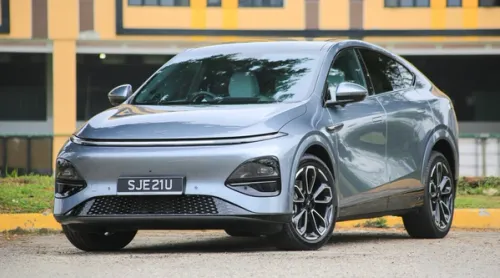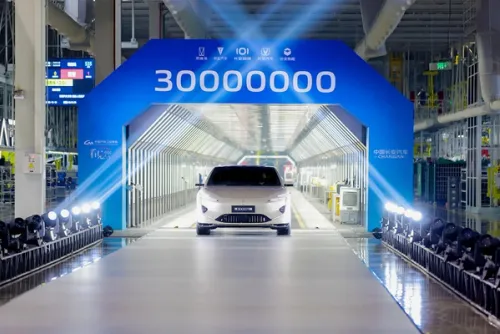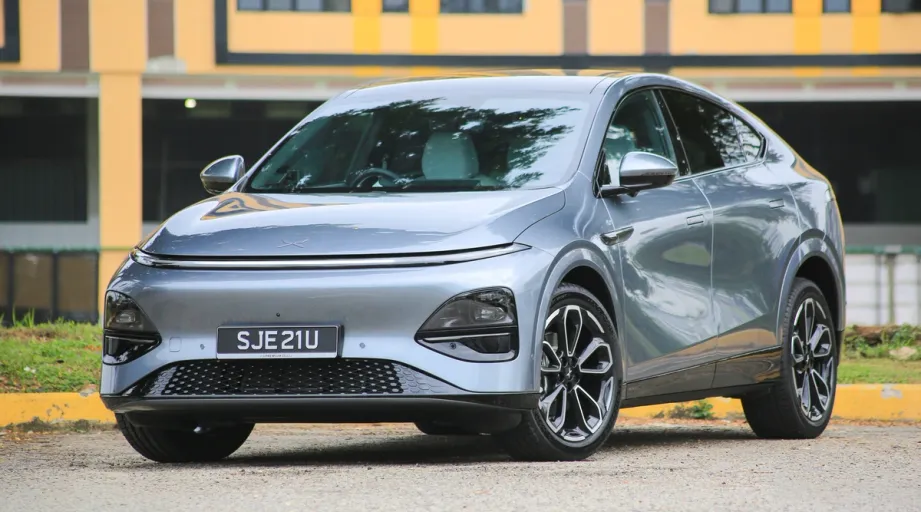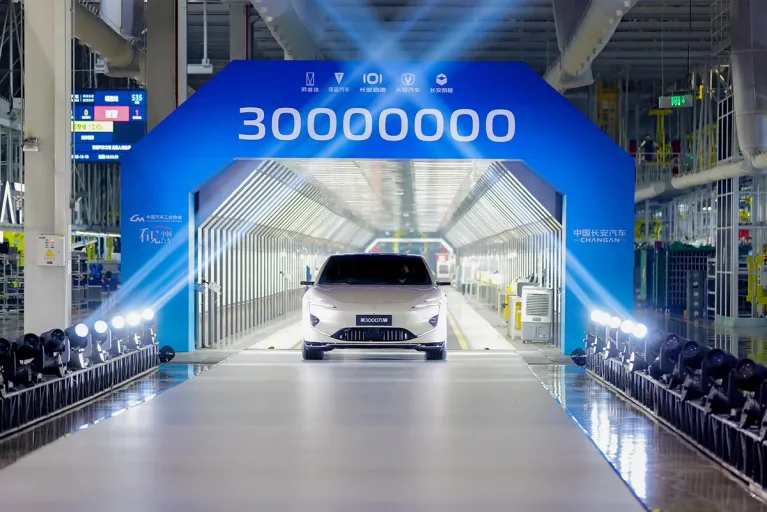R8TED (v)X
Beginning the year with a supercar certainly is a great start. So first of all, a belated happy New Year friends! The second generation Audi R8 is currently the most powerful production Audi ever. Hand assembled in the same facility that built the R8 LMS Le Mans car, Audi’s management of Lamborghini also has also landed them with expertise in building a supercar for the road.


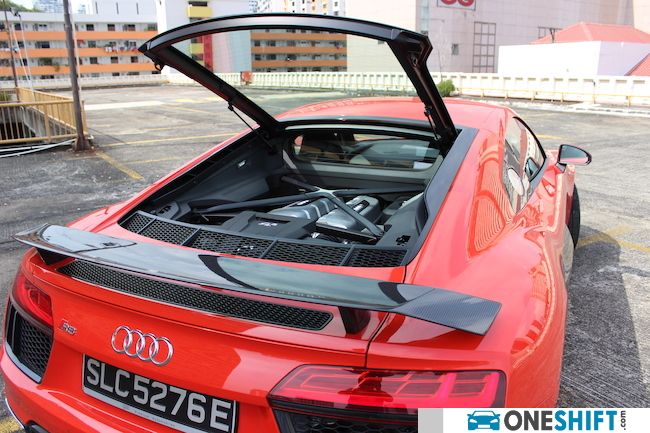
Powering the R8 is a 5.2 litre naturally aspirated V10 engine, with a high compression ratio of 12.7:1. What we loved was that the engine could react so quickly to full throttling. It did take a while to get used to how easy it was to turn, point and punch the car out of a corner. Audi mentioned that it only takes 6.6 tenths of a second for the engine to react and jump to full load from idle, which is almost 20 percent higher than the previous car.
What all that translates to, is power on tap exactly where you’d want it, without that momentary delay.
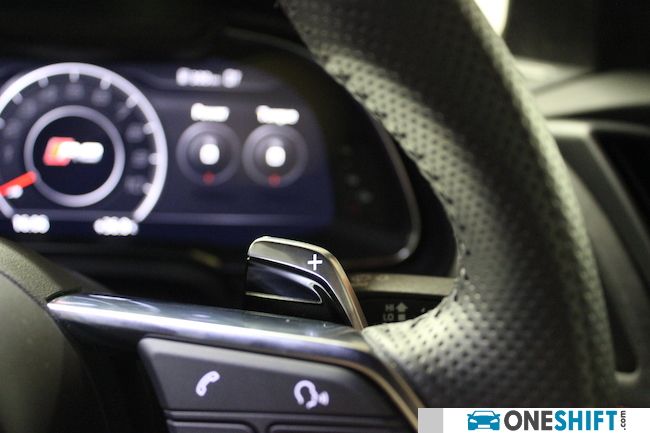
Taking the R8 around some twisty bends immediately showed me the advantage of this, with the car powering out at the point where you want it to. There have been some awkward moments with other cars when doing the same routine, only to find that power does not kick in when you want, leaving the car to almost coast around the corner before power reluctantly pushes in.
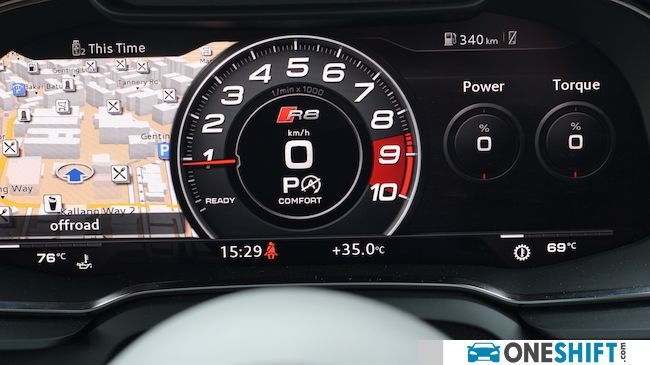
As for mid-engined cars, there is very minimal frontal plough coming from it, instead, you can feel the entire car shifting controllably in unison, with a slight hint of oversteer, while the new Haldex Quattro system sends power to the correct wheels to keep the car in line. Power delivery is spread in what feels like a 15/85 front / rear distribution, with the system being able to summon 100 percent of its power to either front or rear wheels if needed.
Mated to a seven speed dual-clutch automatic gearbox, there are paddle shifters available behind the wheel, if you do feel that you need to up or down a cog. Additionally, Audi had also programmed the transmission to skip gears when holding onto the downshifting paddle, letting the engine to hit the lowest possible gear, while near rev-limited engine speeds. Which simply means, one moment you just want to cruise on gear 7, and the next you could be punching the engine past the 8,000rpm mark at second, just because...
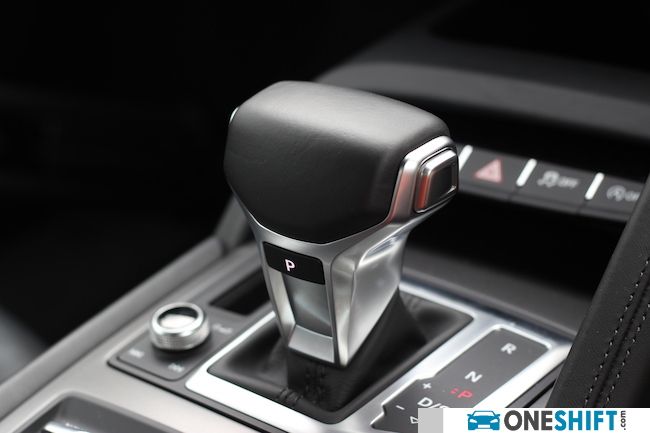
The R8 makes the century sprint in just 3.5 seconds, with the 7-Speed S-Tronic, mounted behind the engine shifting cogs seamlessly. Power delivery from the naturally aspirated V10 is extremely linear, and not head-pressed-hard on headrest brutal.
While it is a supercar, we were pleasantly surprised that the car was so easy on the bones in “Comfort” mode, meaning that the R8 could make it as an everyday cruiser, and supermarket run machine. Ok maybe forget the last one. In Dynamic mode, the electromagnetic suspension does its job of keeping things firm and planted. Stability programme selection can be done in “Dynamic” mode, allowing the system to relay power the best way possible to the wheels.
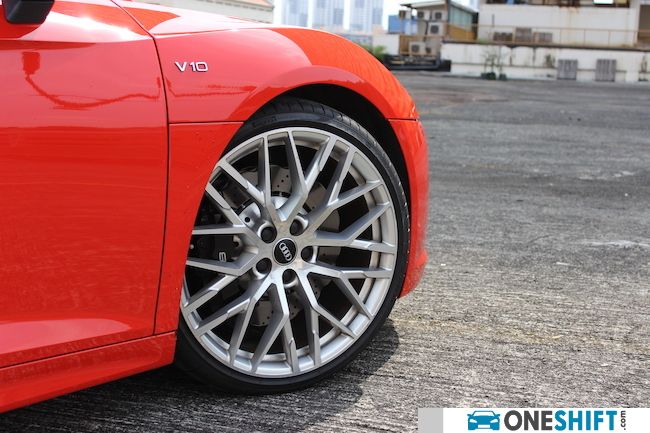
On a greener note, the R8 is able to coast as-if on neutural. The R8 does this by disengaging both clutches when you lift off the accelerator paddle. Essentially, similar to dropping the car into Neutral, and gliding (just do not do this in your own car). Additionally, the Cylinder on Demand system cancels off one bank of cylinders under lighter loads, and in the four upper gears, but with a twist. Audi did also mention that the system also does sequential switching of banks to prevent cooling of the catalytic converter, and ensuring engine longevity.
There are supercars which have all go, and do look good, but the element of sensible drivability and liveability tend to take a back seat. The R8 does perform, but where liveability is concerned, you know that where there is German sensibility in place, you may have faith.
Additionally, with all the engine rightsizing going on, we may not see large naturally aspirated engines which do deliver equally well on power as they do on noise in the near future.
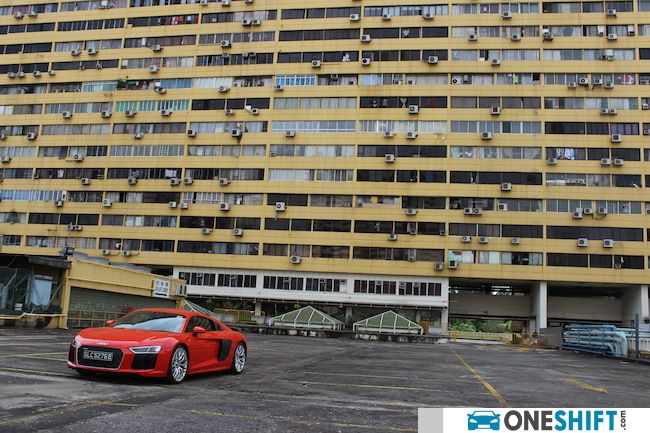
Credits:
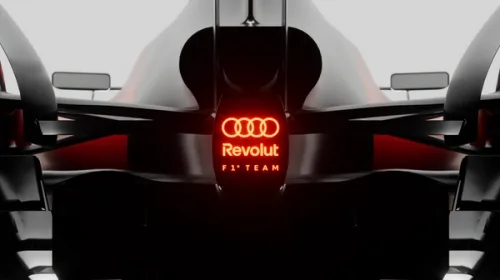


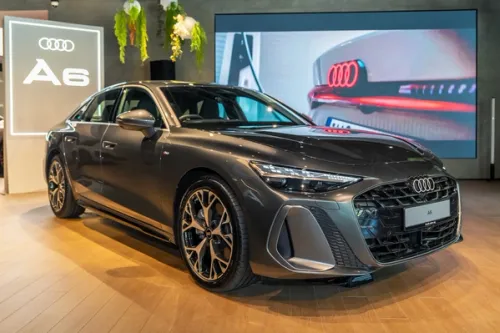

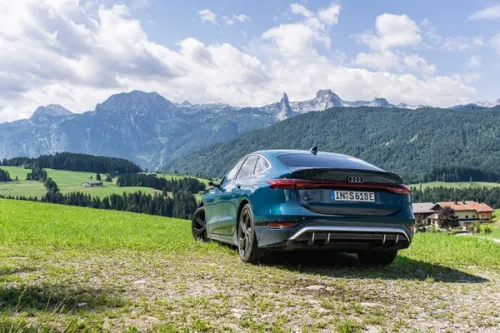


Get the Best Price for your used car
from 500+ dealers in 24 hours

- Convenient and Hassle-Free
- Consumer Protection
Transparent Process
With No Obligation
